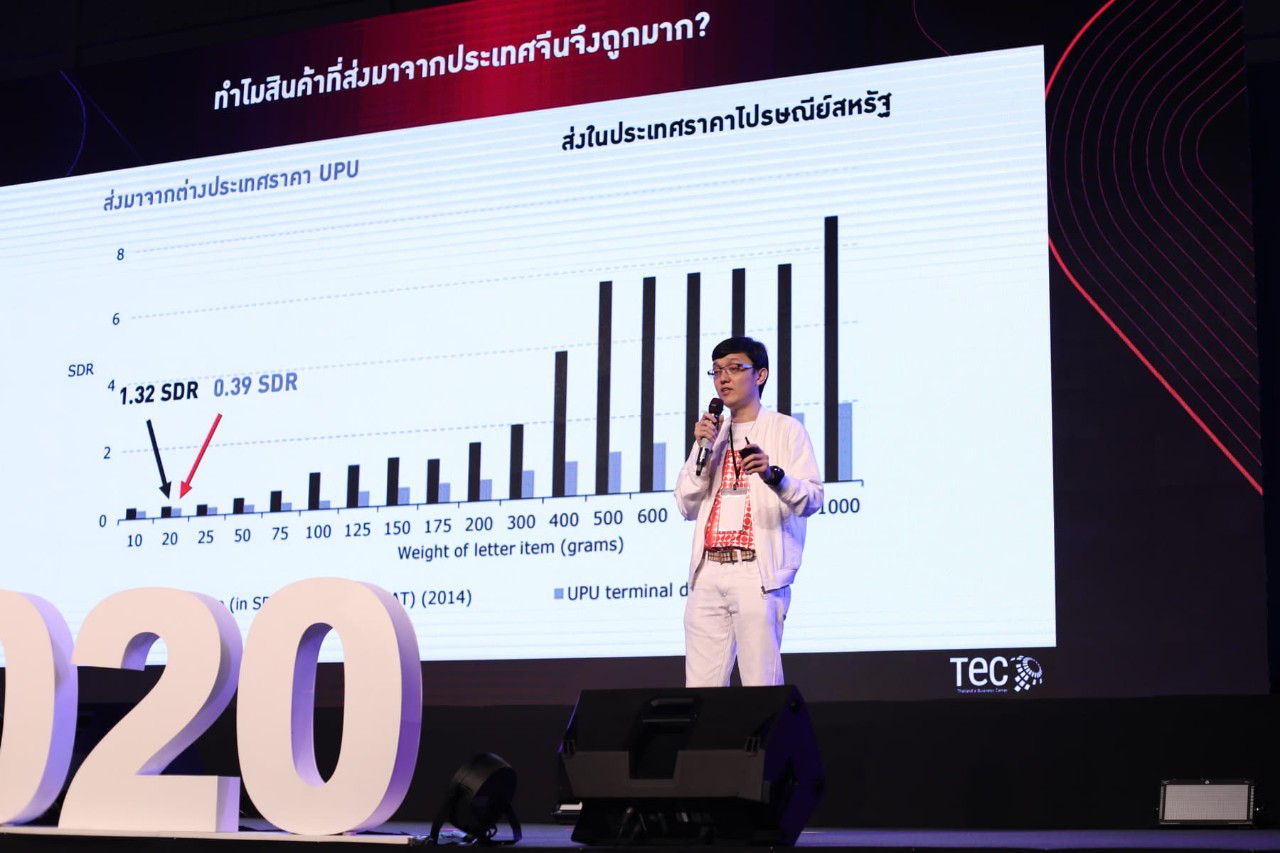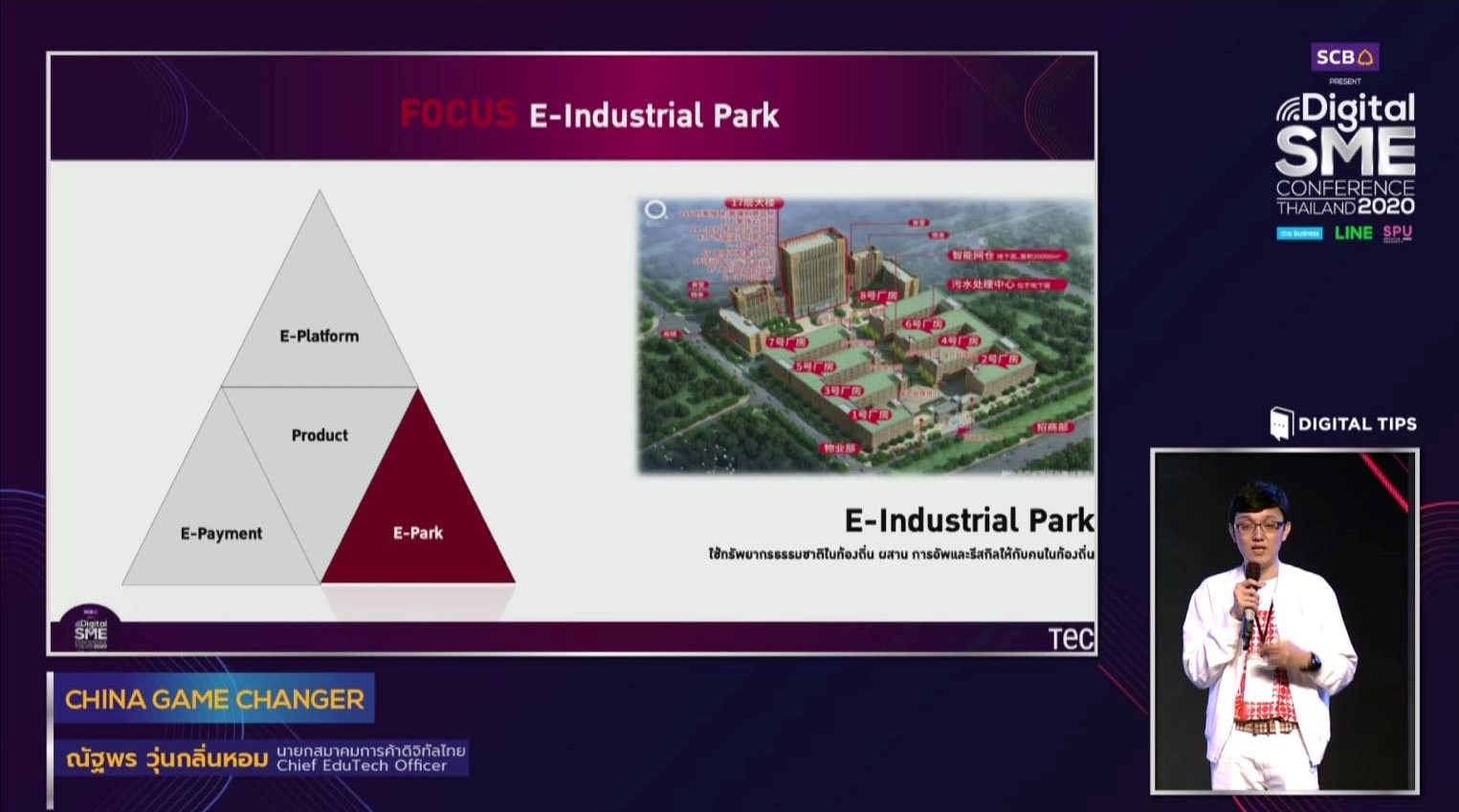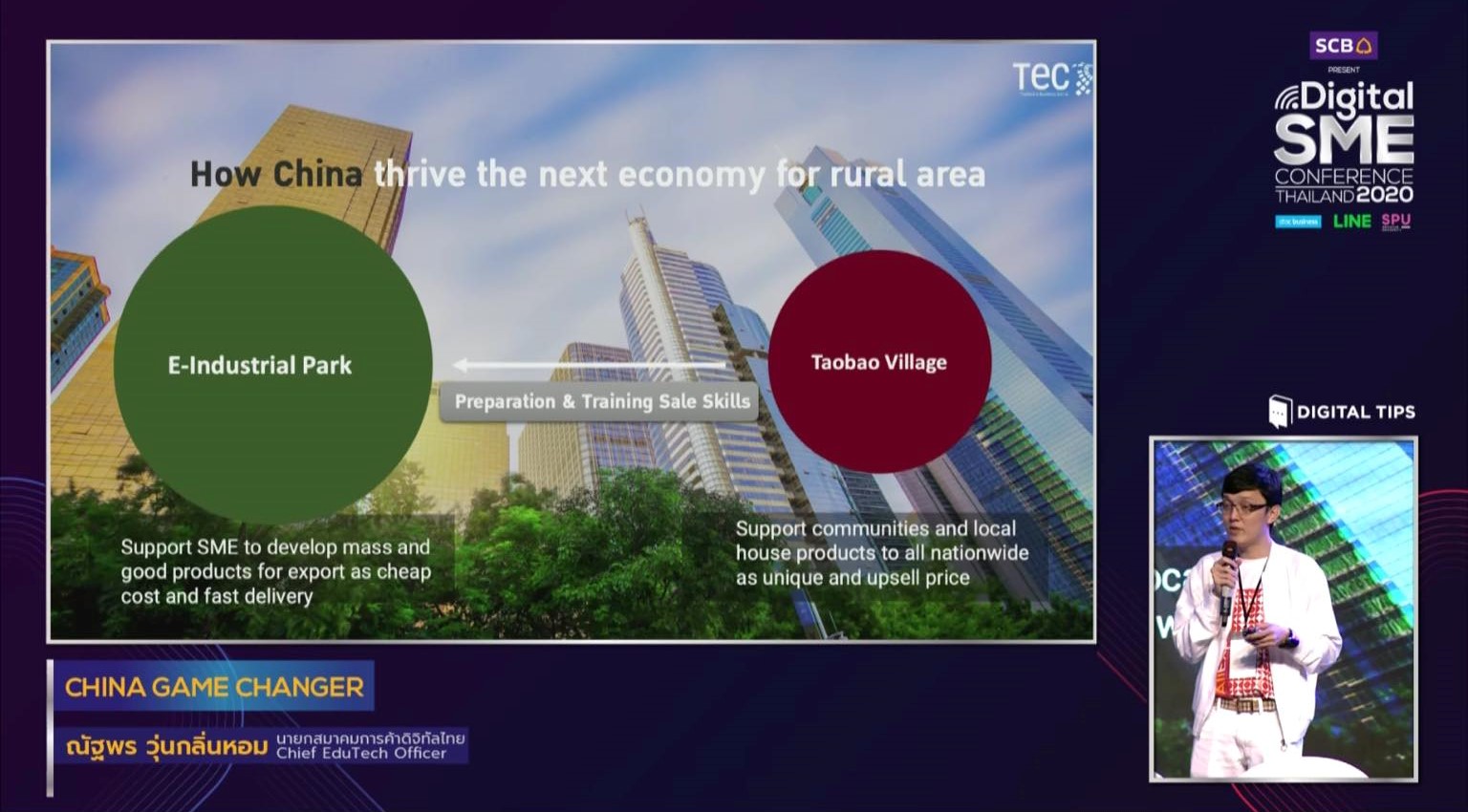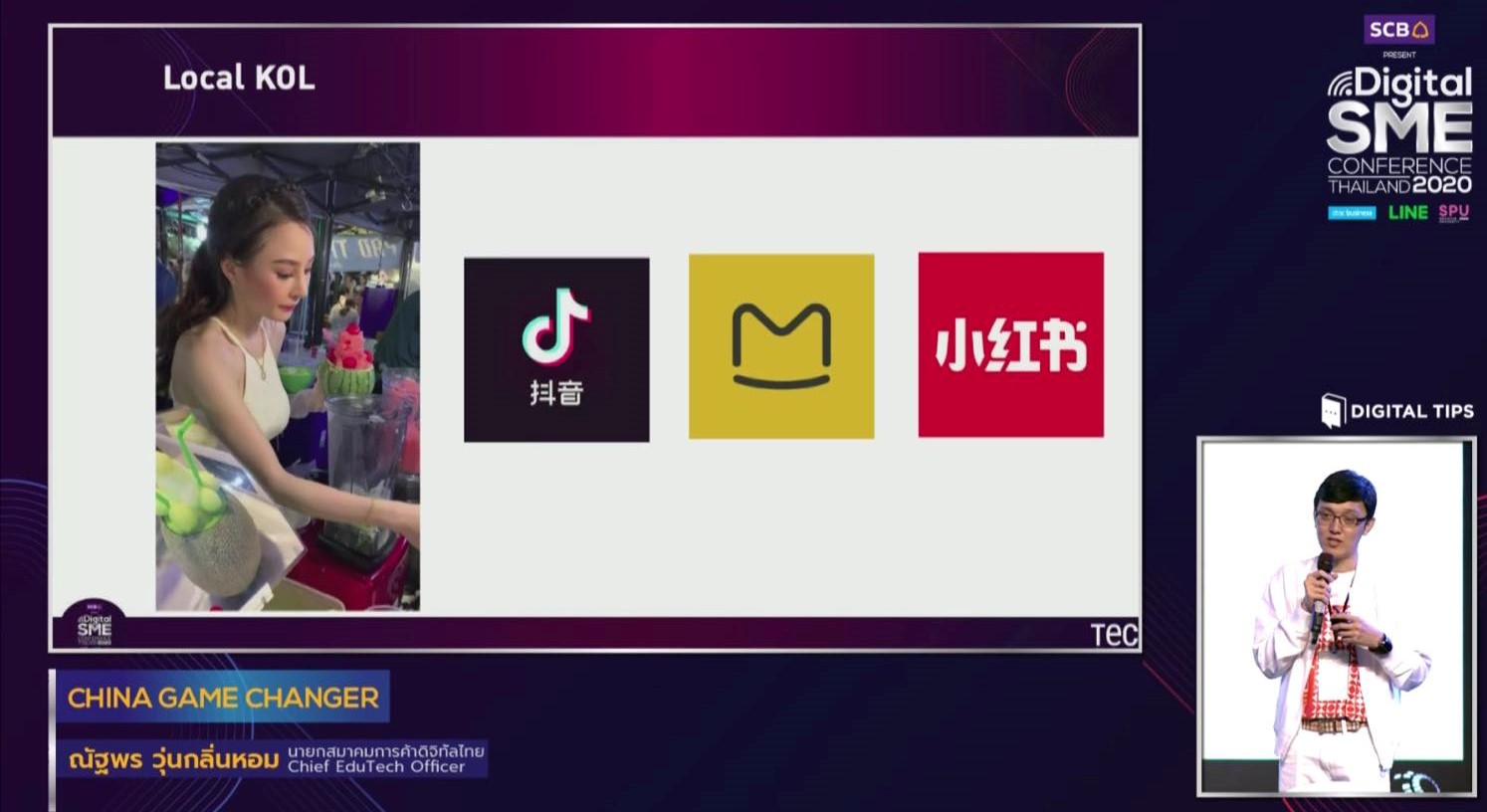I WANT
RELATED LINKS
I WANT
RELATED LINKS
RELATES LINKS
I WANT
RELATES LINKS
Services
Related Links
Use and Management of Cookies
We use cookies and other similar technologies on our website to enhance your browsing experience. For more information, please visit our Cookies Notice.
- Personal Banking
- Stories & Tips
- BUSINESS MAKER
- China Game Changer learns the secret of making a SME to bang, Made in China edition
- Personal Banking
- ...
- China Game Changer learns the secret of making a SME to bang, Made in China edition
STORIES & TIPS
China Game Changer learns the secret of making a SME to bang, Made in China edition
China Game Changer learns the secret of making a SME to bang, Made in China edition
16-09-2020
Earlier, China was a global business destination looking to enter the market. Bringing products to 1.3 billion consumers. But China this year has turned the role of a manufacturer and exporter of many industries. There are many Chinese brands recognized in the world market. Many of them have grown from being an SME business before, and there are still many emerging SME entrepreneurs that Aiming to build a business which is an important part of driving the country's economy
At the Digital SME Conference Thailand 2020, Khun Natthaphon Vunklinhom, President of the Thai Digital Trade Association, Chief EduTech Officer, E-Commerce Technology Specialist, former CTO developed Lazada platform, etc. Having worked in China for more than 7 years and has worked with AliExpress in the Alibaba Group, he has a deep understanding of the Chinese market. Come to share knowledge and ideas about the development of SME business in China.

Chinese business growth factors
1) encouragement to act: When in China Khun Natthaporn used to train on projects that transform ordinary people into SME entrepreneurs by practicing real business practice. In which vocational students in the 1st year were given an internship in selling goods Set a sales target of 100,000 dollars so that they can pass up to high education. Which will have another sales target set and when successful, they will receive a loan of half of the sales achieved. Used as capital to build their own business There are also various projects. That the Chinese government helps Chinese entrepreneurs as well.
2) Data-Driven support in all industries: China's industrial estates have now developed in the form of e-Industrial Park, where Big Data is used to define production and marketing plans. For example, at E-Park fashion, clothing production will come from predictive data analysis 12 months in advance. For example, look at Data on which of the top 10 clothes will be in demand by customers in the next 12 months. How many do they want, what color do they want? Which can view information around the world. Or pricing of durian using data analyzed to know in advance that Chinese households in each province will need how much durian and bring information to set prices. China uses this kind of analytical data on all types of products in the world, where data comes from all available search engines and is used to analyze and support business plans, so entrepreneurs can plan their business strategies effectively.

3) e-Industrial Park/e-Platform/e-Payment: In addition to Big Data, China's e-Industrial Park, which has more than 4,000 locations in a variety of industries, is also a hub for industrial clustering, supply chain systems, storage facilities, logistic transportation, as well as information centers for exporting countries worldwide and share service. Collect orders of SME entrepreneurs to export to foreign markets. E-Industrial Park is a place for Chinese entrepreneurs to grow into global businesses such as Huawei, OPPO, Meizu, Vivo, and Xiaomi are all growing from e-Industrial Park. In addition, in the park, there are communities, schools, universities, hospitals, shopping centers, duty-free places in the settlement. Full range of facilities in the area. Khun Natthaporn said that the settlement selected from geography such as Hangzhou is a fashion clothing settlement. The government issued a rule for foreign fashion brands to sell in China. Must send a master-level designer to teach Chinese students.
In terms of e-Platform, this is not an online shopping platform as Thai people understand. For Chinese people, e-Platform means using online as a hub for content sharing and sales across all platforms around the world. As for e-Payment, it is not just an online QR Code payment or credit card. But it is a Digital Currency issue that focuses on the currency that the operator receives the highest margin and the lowest fees.

4) E-commerce village:: In addition to the e-Industrial Park that developed SME entrepreneurs for export, China also developed local rural SME entrepreneurs. For selling in the country. The entrepreneurs will gather in villages such as Taobao Village, doing the same business. But different in details of each house. Then benefit from bargaining power for raw materials and labor to reduce business costs. Helping live selling goods, receiving orders, packing, delivering products, etc. Mini Arm Robot Chain is also used to help.
5) Future Area 10 Years Plan: The Chinese government has made a China Future Area 10 Years Plan, detailing urban development plans in different areas. Let people know which city is an opportunity for SME to grow in the future. To inspire young people to gain knowledge and experience in the big city and return to start a home development business

Chinese market by using Local KOL (Key Opinion Leader)
Khun Natthaporn told about his experience using KOL Thai people to promote Thai products in China. Such as Nong Joy Ratchada, a female trader at the train market Ratchada It is very popular in Chinese social media because it has a face like a statue of Xizi, one of the four legendary Chinese women on the edge of Xihu Lake. Next is Ping Ping A woman who sells coconuts at Rom Hub Market, Samut Songkhram, has the style of chopping coconuts that hit the hearts of Chinese tourists. It is famous, known by many Chinese people. Alibaba also chose P'Ping Ping as the presenter to promote Alipay in Thailand, and Chinese people also viewed Ping Ping as Queen of Coconut.
The next person was Ah Mei. The famous clip from viral drug inhalation Poi Sian Chitralada Milk tablets and golden cup balm. The latest is Nong Angun at the Pattaya Floating Market Chinese people know all because of her face like the daughter of President Xi Jinping. And the Chinese people who come to Thailand all want to take pictures. Therefore, using the right KOL is an opportunity to take products and services from Thai SMEs to conquer Chinese people.
Source: SME Conference Thailand 2020: China Game Changer by Mr. Natthaphon Vunklinhom, President of the Thai Digital Trade Association, Chief EduTech Officer
